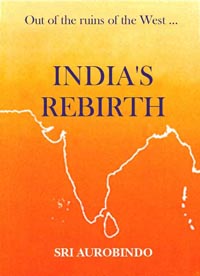|
Page1
 I
I
1893-1910
(After thirteen years in England where he received a thoroughly Western education, Sri Aurobindo returned to India on February 6, 1893, at the age of twenty.
Bankim Chatterji's Anandamath, which contained "Bande Mataram," the hymn to the Motherland, had been published eleven years earlier. Swami Vivekananda had just come to the end of his first pilgrimage round India, and was preparing to sail for America. But it was going to take another dozen years for their call to their countrymen to find expression in the political field. For the present, the eight-year-old Indian National Congress, whose members were mostly drawn from the Anglicized upper classes of society, had full faith in British fair-mindedness and the "providential character" of British rule in India, and year after year swore its "unswerving allegiance to the British crown"; it was content with submitting petitions which were simply ignored by the Colonial rulers. There was another twelve years to go before the start of the open struggle for freedom in 1905, and twenty-five years before Mahatma Gandhi's entry on the political scene in 1918.
Sri Aurobindo was twenty-one when he wrote a series of nine articles, "New Lamps for Old", in the Indu Prakash, a Marathi-English Bombay daily; in these articles, which had to be stopped following pressures on the newspaper's editor, Sri Aurobindo took stock of the prevailing situation and launched into a detailed and forceful criticism of the "mendicant policy" of the Congress. A few extracts:)
Author - Sri Aurobindo
|